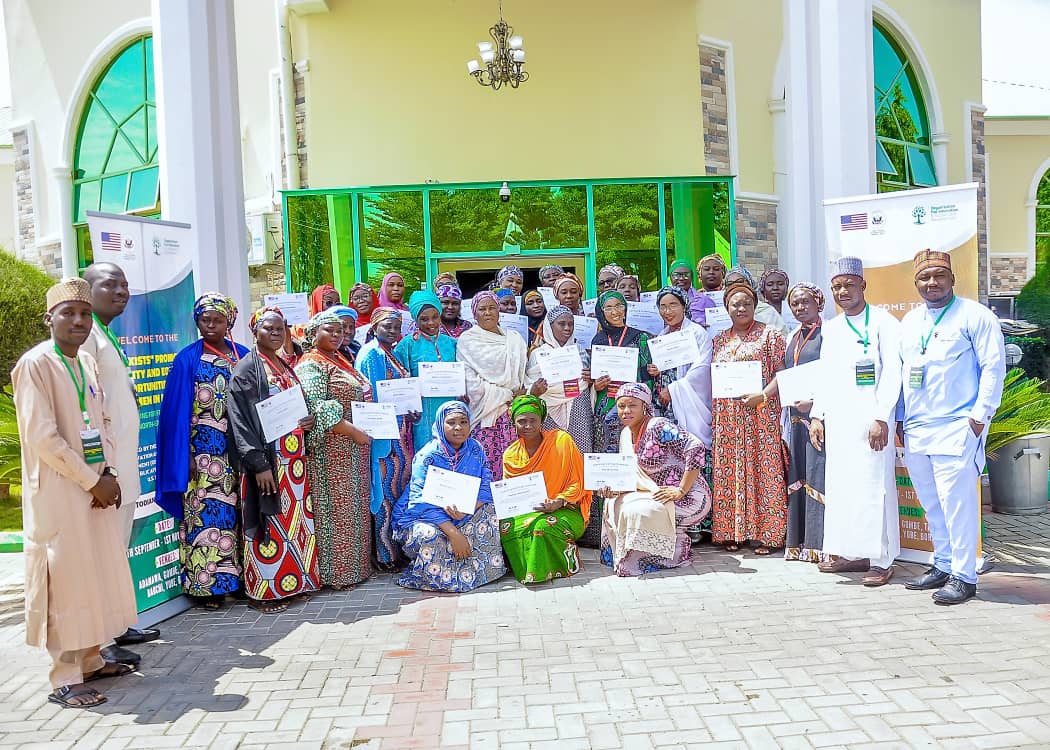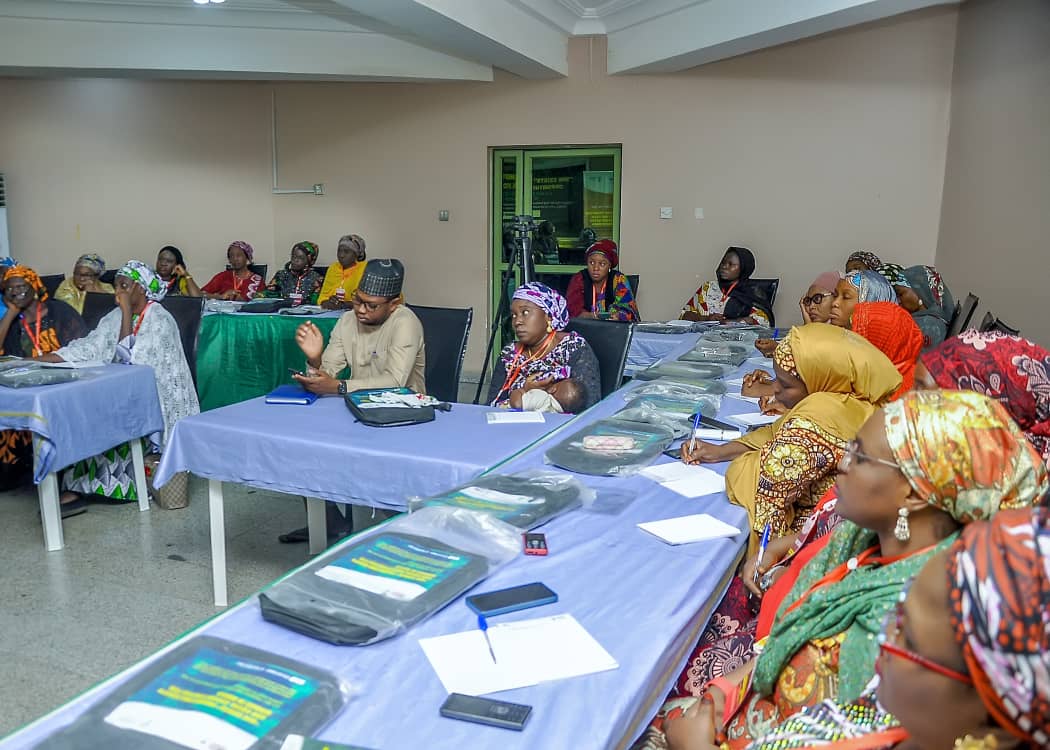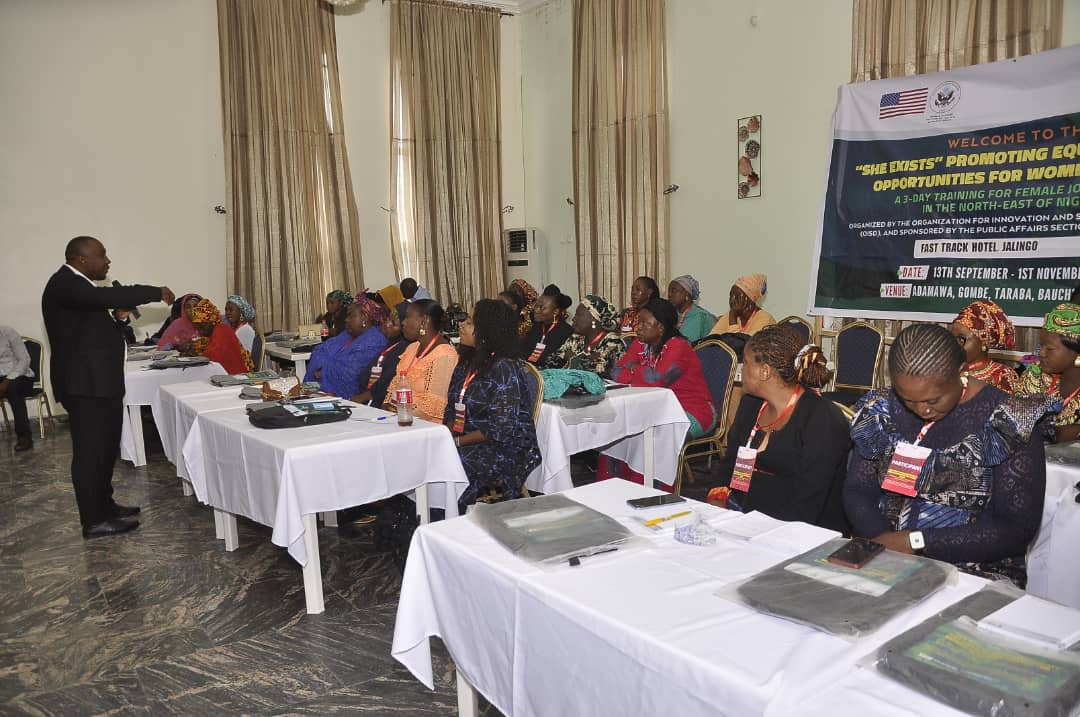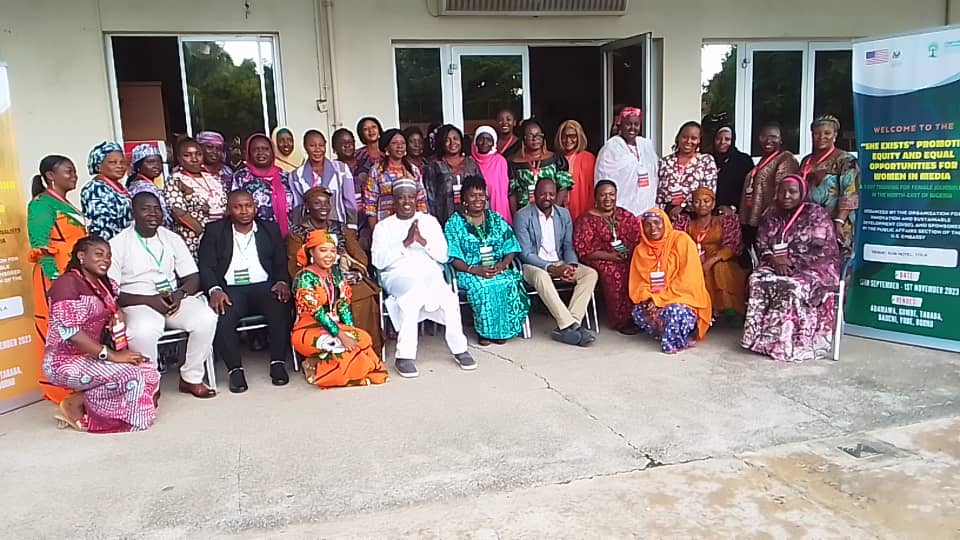Education
OISD Empowers Teachers with Digital Literacy and AI Skills to Revolutionize Education in Nigeria
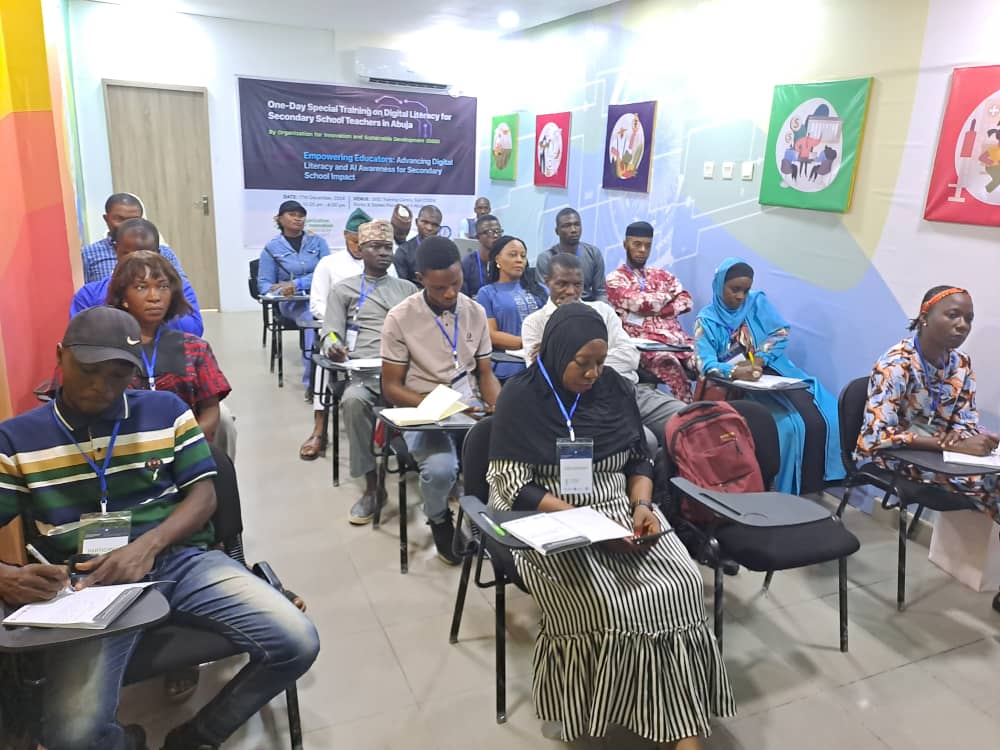
The Organization for Innovation and Sustainable Development (OISD) has taken a significant step toward transforming education in Nigeria by organizing a one-day special training on digital literacy for secondary school teachers in Abuja.
The event, held at the OISD Training Centre in Abuja, was designed to equip educators with essential digital skills and increase awareness of Artificial Intelligence (AI) to enhance their teaching impact.
In his opening remarks, Mr. Jamilu Yusuf Dan-Ummah, the Executive Director of OISD, introduced the theme of the program: “Empowering Educators: Advancing Digital Literacy and AI Awareness for Secondary School Impact.” He emphasized the critical role teachers play in shaping the future of education and the need to adapt to the rapidly evolving digital landscape.
Mr. Dan-Ummah highlighted that the objective of the training was to bridge the digital gap in classrooms by empowering teachers with the knowledge and tools to integrate digital literacy and AI-driven solutions into their teaching methods.
According to him, educators must stay ahead of technological advancements to prepare students for the challenges and opportunities of the 21st century.
“This training is a response to the growing demand for educators who can leverage digital tools and AI to deliver effective learning experiences. Our goal is to ensure that teachers are not just aware of these technologies but are also capable of applying them to improve student outcomes,” Mr. Dan-Ummah stated.
The program brought together secondary school teachers from various schools across Abuja, providing them with hands-on training on essential digital tools, interactive learning platforms, and AI concepts.
Facilitators at the event shared insights on how to use technology to make lessons more engaging, foster critical thinking, and prepare students for a technology-driven world.
The event concluded with participants expressing their appreciation for the training and the actionable insights they gained. Some of the teachers highlighted the importance of continuous capacity-building programs to keep up with emerging educational trends.
Education
NELFUND Begins Upkeep Payments to Over 3,600 Students After Bank Detail Update

The Nigerian Education Loan Fund (NELFUND) has commenced the disbursement of upkeep payments to students who successfully updated their bank account details from digital wallets to commercial bank accounts.
This was announced in a statement released on Friday in Abuja by the Director of Strategic Communications of the Fund, Mrs. Oseyemi Oluwatuyi.
Oluwatuyi described the development as a significant breakthrough in addressing earlier disbursement delays.
“Over 3,600 students, who previously registered with digital-only banking platforms, have now successfully received their backlog of upkeep payments after updating their details to conventional commercial bank accounts on the NELFUND portal,” she stated.
“We appreciate the patience and understanding of all affected students during this period. Your resilience and cooperation have made this progress possible,” she added.
The NELFUND spokesperson advised students who have yet to update their bank details to raise a support ticket via the official NELFUND portal to request access for the update.
She further urged affected students to report through the IT office of their respective institutions, which would compile and forward all related cases to NELFUND for prompt resolution.
“NELFUND remains committed to ensuring that no eligible student is left behind. This resolution process is part of our broader effort to enhance the efficiency, transparency, and student-centered delivery of our support services,” she said.
Oluwatuyi encouraged students to continue engaging only through official NELFUND channels and to assist their peers who may need help navigating the update process.
She also provided contact options for inquiries, stating that the fund can be reached via email at info@nelf.gov.ng or through its official social media handles: X (formerly Twitter) @nelfund; Instagram @nelfund; and Facebook & LinkedIn: Nigerian Education Loan Fund – NELFUND.
Education
NELFUND Urges Institutions to Upload Student Data for Loan Processing

The Nigerian Education Loan Fund (NELFUND) has issued a directive to all accredited tertiary institutions to verify and upload their students’ data on the newly digitised Student Loan Application System (SLAS).
This was disclosed in a statement released in Abuja on Wednesday by the Director of Strategic Communications at NELFUND, Mrs Oseyemi Oluwatuyi.
According to Oluwatuyi, the SLAS platform has been fully digitised to streamline and accelerate the student loan processing experience for both institutions and applicants.
“With this upgrade, all accredited institutions are now required to request access to SLAS to verify and upload student data related to loan applications,” she said.
She described the move as “a critical step that ensures the timely processing and disbursement of approved student loans.”
Institutions that have not yet been onboarded onto the system, she said, are advised to send an access request to registration@nelf.gov.ng without delay.
“Once granted access, institutions will be able to view a real-time dashboard of their students’ loan applications, verify submitted data, and track the status of each application,” Oluwatuyi explained.
She called on all institutions to take immediate action in the interest of their students, stressing that verification and data upload by institutions are mandatory steps before final approval and disbursement of loans can be completed.
On the students’ side, Oluwatuyi noted that if an application status currently shows “Verified,” it means the application has passed initial checks. However, final approval and disbursement depend on the institutions’ confirmation and data upload.
“Once this process is completed, your status will be updated to ‘Disbursed’ when the payment of your fees has been processed,” she added.
She also encouraged students to reach out to the fund for assistance via email at info@nelf.gov.ng.
Other official communication channels include:
-
X (formerly Twitter): @nelfund
-
Instagram: @nelfund
-
Facebook & LinkedIn: Nigerian Education Loan Fund – NELFUND
Education
NUC grants ESUT full accreditation for Law, 7 other programmes

The National Universities Commission, (NUC), has given full accreditation to the Enugu State University of Science and Technology (ESUT), for her Law programme.
According to the Public Relations Officer of ESUT, Mr Ikechukwu Ani, this is contained in a letter addressed to the institution’s Vice Chancellor, Prof. Aloysius Okolie, on Wednesday in Enugu by the NUC.
Ani said that in the letter, the Executive Secretary of NUC, Prof. Abdullahi Ribadu said the report was contained in the result of the October/November 2024 accreditation of academic programmes in Nigerian universities.
Ani disclosed that other programmes in the institution accredited by the NUC include Master of Science in Business Management; Education Computer Science; Education Physics and Agricultural Engineering.
Other accredited programmes he said were Quantity Surveying; Urban and Regional Planning; and Applied Microbiology.
He said that the letter quoted Section 10 (1) of the Education National Minimum Standard and Establishment of Institutions, Act CAP E3, Laws of the Federation of Nigeria 2004 as empowering the NUC to lay down minimum academic standards for all academic programmes taught in Nigerian universities.
He said the session also empowers the NUC to accredit such programmes.
-

 Headlines3 years ago
Headlines3 years agoFacebook, Instagram Temporarily Allow Posts on Ukraine War Calling for Violence Against Invading Russians or Putin’s Death
-

 Headlines3 years ago
Headlines3 years agoNigeria, Other West African Countries Facing Worst Food Crisis in 10 Years, Aid Groups Say
-

 Foreign3 years ago
Foreign3 years agoNew York Consulate installs machines for 10-year passport
-

 News10 months ago
News10 months agoZero Trust Architecture in a Remote World: Securing the New Normal
-

 Entertainment3 years ago
Entertainment3 years agoPhyna emerges winner of Big Brother Naija Season 7
-

 Headlines1 year ago
Headlines1 year agoNigeria Customs modernisation project to check extortion of traders
-

 Economy1 year ago
Economy1 year agoWe generated N30.2 bn revenue in three months – Kano NCS Comptroller
-

 Headlines1 year ago
Headlines1 year agoPhilippines’ Vice President Sara Duterte resigns from Cabinet



